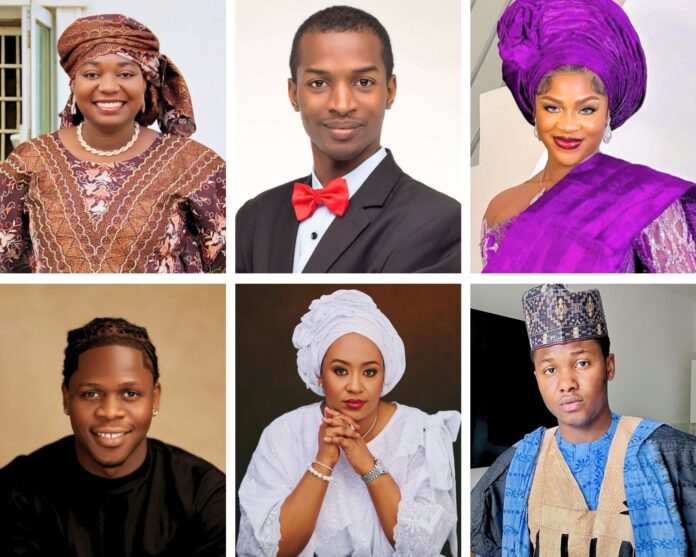Nigeria’s youth and the double-edged sword of content creation
Content creation has become one of the most attractive opportunities for young Nigerians today. Influencers, skit-makers, podcasters and digital marketers are not just entertaining audiences, they are building careers. From brand endorsements to ads and platform monetisation, thousands of young people are earning a steady income outside of traditional office jobs.
Recent studies all over the web confirm that social media monetisation is reshaping youth employment and income, offering flexible earnings, even as struggles with income stability and long-term productivity linger.
Independence
For many, this new wave reduces dependence on parents and sidesteps the endless wait for government employment. It also allows creative Nigerians to showcase talent, tell their own stories, and connect with a global audience.
The rise of platforms like TikTok, Instagram and YouTube has made it possible for local creators to reach millions without leaving their neighbourhoods.
READ ALSO: ACF engages journalists, influencers on unified narrative for greater impact
Additionally, names like Mark Angel, who turned comedy skits into an international franchise, VeryDarkMan and Asherkine who, across platforms, are increasingly becoming the people’s heroes, or Kie Kie, whose witty lifestyle content has won her brand partnerships, show how far Nigerian creators can go. Younger acts like Purplespeedy on TikTok also demonstrate the global reach of a simple dance trend when it is packaged with energy and consistency.
The dark, hidden part
Yet, behind the glamour of viral videos lies a different story. In the race to stay relevant, some creators cross boundaries: invading people’s privacy, staging reckless pranks, or even engaging in criminal behaviour to grab attention.
A controversial case that grabbed headlines involved pranksters staging fake kidnappings in public for laughs, only to end up arrested by the police for causing panic. What starts as entertainment can quickly drift into exploitation.
Low interest in education
Education is also taking a hit. With the whole dernier cri of the saying, “school na scam,” young people abandon school or vocational training in pursuit of quick online fame. Why build long-term when that 15-second TikTok video might get you millions of views tomorrow? It’s the instant high, but when the likes drop, reality bites hard.
READ ALSO: 23-year-old influencer shot dead during TikTok livestream
Attack on mental health, cultural norms
Mental health is another hidden casualty. Chasing likes, comments and shares often creates cycles of anxiety and depression. Validation becomes tied to numbers on a screen, leaving many young creators feeling inadequate when engagement drops. Behind the bright filters and edited clips, loneliness and burnout are common.
The cultural impact is equally complex. Content creation has normalised open conversations, encouraged innovation and given a platform to youth voices.
But it has also accelerated a wave of content that challenges traditional values. Explicit jokes, disrespectful pranks, or glorification of materialism often overshadow positive stories. For a society still anchored on communal values, this raises questions about the cost of unchecked digital expression.
Still, content creation is not all doom. Many creators are using their influence to champion mental health awareness, promote education and push for social change. Governments and NGOs are also beginning to explore how this industry can create jobs and support entrepreneurship, if harnessed responsibly.
READ ALSO: National Assembly is not for content creation – Senate spokesperson
The tension, however, remains. Content creation is empowering young Nigerians with financial freedom and visibility, but it is also very rapidly exposing them to pressures that can destroy self-worth and erode social values.
Way forward
Platforms need to step up with safer rules. Schools and communities should teach digital savvy, not just digital dance. Influencers, especially the big names, should model integrity, not just trends. And society has to look beyond the follower count, remembering that a healthy mind matters more than a trending hashtag.
Most importantly, creators themselves must take responsibility for shaping narratives that inspire, rather than degrade.
If that balance is found, content creation can be more than just the chase for likes. It can be a tool for empowerment, cultural preservation, and economic growth of the nation, without pulling apart the very fabric of society it springs from.
Follow the Neptune Prime channel on WhatsApp:
Do you have breaking news, interview request, opinion, suggestion, or want your event covered? Email us at neptuneprime2233@gmail.com






Yes you are write about content creating but believe you me not all things that glitters as gold most people don’t have permanent source of income in content rather fame and audience also in as much as I promote content selling it is crucial as we spend more on data and airtime finally, avoid corruption for the net is full of that in todays word. Kudos salim for the wonderful article 👍🏼